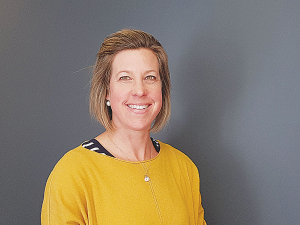NZ Catchment Groups Thrive with ‘Source to Sea’ Approach
The most successful catchment groups in NZ are those that have 'a source to sea' approach.
 The Rangitikei Catchment Collective is an umbrella for 17 sub-catchment groups, says coordinator Louise Totman.
The Rangitikei Catchment Collective is an umbrella for 17 sub-catchment groups, says coordinator Louise Totman.
Catchment projects need to be farmerled, according to Louise Totman, who coordinates the Rangitikei Rivers Catchment Collective.
Totman says the decision to join the collective needs to be a farmer-led initiative on behalf of the sub-catchment group.
The Rangitikei collective is an umbrella for 17 sub-catchment groups, covering 700,000ha across the Rangitikei, Turakina, and Whangaehu river catchments. Recently it received $910,000 in Government funding.
“We don’t do a big push to get these groups up and running,” she told Dairy News.
“Obviously, we’ve had a few that have been going for two to three years. So, we’ve only started off with a small number and it’s probably only through word of mouth that other groups have jumped on board.
“We support and we encourage them but we don’t run their group. So, it needs to have that enthusiasm of a leader or two leaders that are going to get that ball rolling and keep it rolling,” she says.
“You can’t get everybody,” she says. “You can’t make them but hopefully they’ll catch wind of the opportunities that the members are having within that group and they might realise that they’re missing out on something.”
Totman says the collective work on several projects but the biggest one is monthly water testing.
So far, she says the collective has spent approximately $60,000 on the water testing alone.
“We’re undertaking that every month and every month we’re doing about 64 different sites across that area.”
Totman says the funding will go towards creating workshops at field days and getting experts in to talk to catchment group members.
“We’re sort of building up towards the next two and a half years of spending that money that we’ve been allocated.
“So, up until now, it’s all just been sub-catchment projects but probably not on a catchment scale,” she says.
Totman says that all of the farmers within the sub-catchment groups have a goal of ensuring that no cattle find their way into waterways.
“Up here we’re really lucky that we do have the SLUI [Sustainable Land Use Initiative] plans, they are all funded by Horizons if you’re on the right country for it.
“It’s that most at risk erodible hill country, but we’re really lucky that most of the farmers in these sub-catchment groups… have already got these plans.”
The Real Estate Institute of New Zealand (REINZ) has released its latest rural property report, providing a detailed view of New Zealand’s rural real estate market for the 12 months ending December 2025.
Rural retailer Farmlands has released it's latest round of half-year results, labeling it as evidence that its five-year strategy is delivering on financial performance and better value for members.
OPINION: "We are back to where we were a year ago," according to a leading banking analyst in the UK, referring to US president Donald Trump's latest imposition of a global 10% tariff on all exports into the US.
DairyNZ says the Government’s proposed Resource Management Act reform needs further work to ensure it delivers on its intent.
Overseas Trade Minister Todd McClay says he's working constructively with the Labour Party in the hope they will endorse the free trade agreement (FTA) with India when the agreement comes before Parliament for ratification.
Donald Trump's latest tariff tantrum has again thrown the world of trade into a new round of turmoil and uncertainty, and NZ is caught up in it.
OPINION: Expect the Indian free trade deal to feature strongly in the election campaign.
OPINION: One of the world's largest ice cream makers, Nestlé, is going cold on the viability of making the dessert.